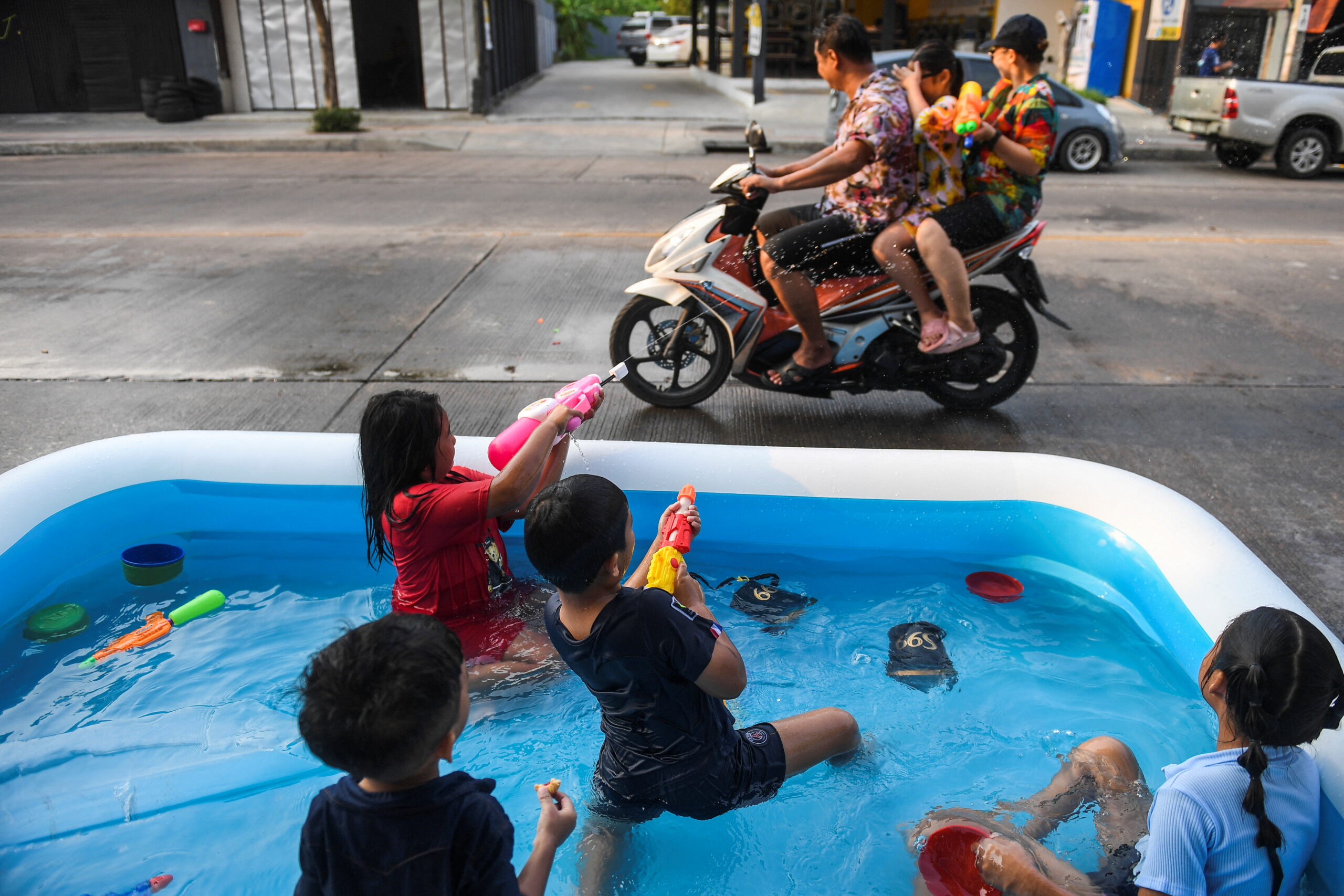Celebrations for Thailand’s traditional New Year, known as Songkran, kicked off with vibrant energy in Bangkok this Friday. Revellers marked the occasion by taking part in spirited water fights on the streets, a welcome respite from the capital’s soaring temperatures.
Chavanin Kalayanamitra, an 18-year-old, shared his enthusiasm for the festival, noting its significance in reuniting him with long-lost friends. “It’s very fun to meet with my old friends,” he remarked, underscoring the personal connections that Songkran fosters. The act of pouring water, central to the festival, is laden with symbolism, embodying cleansing, reverence, and the aspiration for good fortune. Over the years, this ancient ritual has evolved into what many consider the world’s largest water fight.
The festival officially spans three days, although festivities often extend beyond this period, drawing tourists worldwide. “It’s like a completely different world, you know. We love it,” commented Flora, a 30-year-old tourist from France, captivated by the unique atmosphere. The Songkran holiday, marking the Thai New Year, will last five days from April 12 to 16. The festival was included in the Representative List of the Intangible Cultural Heritage of Humanity by UNESCO in December last year.
The celebratory mood was palpable along Bangkok’s renowned Khao San Road, where tourists and locals alike engaged in water battles, armed with water guns. Chloe, a 25-year-old French tourist, expressed her delight at participating in the festival shortly after arriving in Thailand. “We just flew to Thailand and it’s amazing to be here for the festival,” she said.
Songkran is also observed in neighbouring countries such as Cambodia, Laos, and Myanmar, coinciding with the hottest time of the year, when temperatures often exceed 40 degrees Celsius. It is also seen as a time to wash away misfortune, pray for prosperity in the year ahead, catch up with family members and honour seniors in the family and ancestors.
(With inputs from Reuters)
















